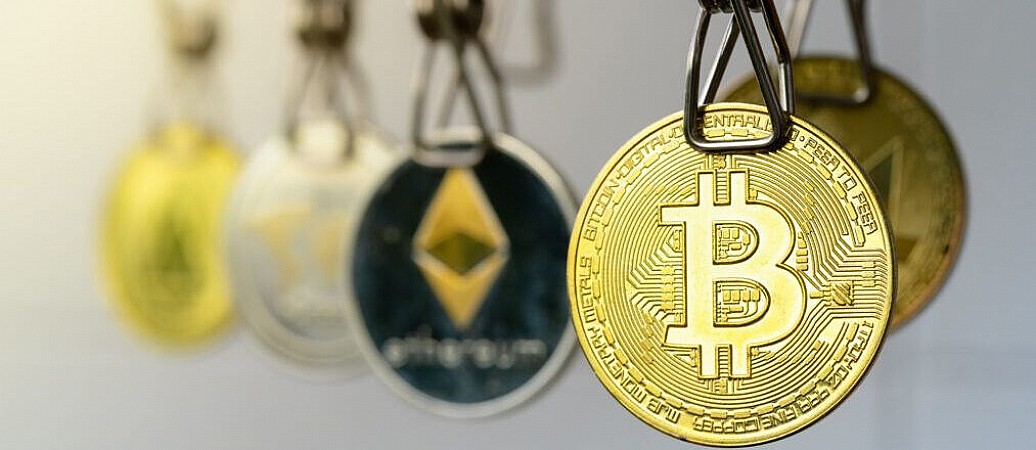Court Blocks Tens of Millions in Crypto Tied to Anti-Government Protests in Nigeria
17.08.2024 11:00 1 min. read Alexander Stefanov
A Nigerian court has issued a freeze on nearly $38 million in cryptocurrency out of a total $50 million that was allegedly donated to support protests against the country’s rising living expenses.
The Federal High Court in Abuja granted this order at the behest of the Economic and Financial Crimes Commission (EFCC), which identified and targeted four specific digital wallets associated with the #EndBadGovernance protest movement.
National Security Adviser Nuhu Ribadu disclosed during a Council of State meeting chaired by President Bola Tinubu that $50 million in donations was traced to crypto wallets, with $38 million successfully blocked from four of these wallets.
Reports indicate that these wallets, however, showed no activity and had no recorded balance.
The protests have been driven by Nigeria’s severe economic challenges, with the naira’s prolonged depreciation against the dollar contributing to a surge in inflation to 33.2%, the highest in decades. Officials blame part of this economic pressure on cryptocurrency trading. I
n a related matter, Bank of Nigeria Governor Olayemi Cardoso previously accused Binance of permitting $26 billion in funds to leave Nigeria without proper tracking, which impacted tax revenues and led to the detention of Binance executive Tigran Gambaryan, who was in Nigeria for discussions on the issue.
-
1
Pennsylvania Man Sentenced to 8 Years for $40M Crypto Ponzi Scheme
28.06.2025 11:30 1 min. read -
2
Crypto Theft Surges to $2.1B in 2025: State Actors Lead Historic Wave of Attacks
27.06.2025 16:30 2 min. read -
3
Solana PumpFun Bot Turns Out to Be Malware in Disguise
04.07.2025 9:00 2 min. read -
4
Hackers Steal $140 Million from Brazilian Central Bank, Launder Funds Through Crypto
05.07.2025 11:00 2 min. read -
5
Investor Loses $6.9M After in TikTok Crypto Scam
16.06.2025 19:00 1 min. read
U.S. Court Ends Tornado Cash Legal Dispute, Marking Win for Coin Center
A legal clash between Coin Center and the U.S. Treasury Department over sanctions imposed on Tornado Cash has officially come to an end, following a joint decision to dismiss the case.
Hackers Steal $140 Million from Brazilian Central Bank, Launder Funds Through Crypto
A sophisticated cyberattack targeting Brazil’s central bank reserve accounts has resulted in the theft of over $140 million (R$800 million), much of which was swiftly funneled through cryptocurrency channels.
Solana PumpFun Bot Turns Out to Be Malware in Disguise
A malicious open-source project on GitHub disguised as a Solana trading bot has compromised user wallets, according to a July 2, 2025, report by cybersecurity firm SlowMist.
Pennsylvania Man Sentenced to 8 Years for $40M Crypto Ponzi Scheme
The U.S. Department of Justice has sentenced Dwayne Golden, 57, of Pennsylvania to 97 months in prison for orchestrating a fraudulent crypto investment scheme that stole over $40 million from investors.
-
1
Pennsylvania Man Sentenced to 8 Years for $40M Crypto Ponzi Scheme
28.06.2025 11:30 1 min. read -
2
Crypto Theft Surges to $2.1B in 2025: State Actors Lead Historic Wave of Attacks
27.06.2025 16:30 2 min. read -
3
Solana PumpFun Bot Turns Out to Be Malware in Disguise
04.07.2025 9:00 2 min. read -
4
Hackers Steal $140 Million from Brazilian Central Bank, Launder Funds Through Crypto
05.07.2025 11:00 2 min. read -
5
Investor Loses $6.9M After in TikTok Crypto Scam
16.06.2025 19:00 1 min. read


